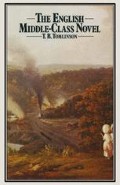Abstract
The title of this chapter is in a sense fraudulent: ‘Small politics and less love’ would be nearer the mark for Disraeli, Mrs Gaskell, and the George Eliot of Felix Holt. Each of the novels I want to consider here is minor, and each of them seems to me badly flawed. Compared with the best of English literature, these are not about either love or politics in any full sense of those words. They must, therefore, be very untrustworthy evidence of what love and politics might really have meant either in the period generally or, if it comes to that, in the lives of these authors.
Access this chapter
Tax calculation will be finalised at checkout
Purchases are for personal use only
Preview
Unable to display preview. Download preview PDF.
Notes
For some examples, see John W. Dodds, The Age of Paradox (Gollancz, 1953 );
and Margaret Dalziel, Popular Fiction too Years Ago, (Cohen, 1957).
Copyright information
© 1976 T. B. Tomlinson
About this chapter
Cite this chapter
Tomlinson, T.B. (1976). Love and Politics in the English Novel, 1840s–1860s. In: The English Middle-Class Novel. Palgrave Macmillan, London. https://doi.org/10.1007/978-1-349-02875-7_5
Download citation
DOI: https://doi.org/10.1007/978-1-349-02875-7_5
Publisher Name: Palgrave Macmillan, London
Print ISBN: 978-1-349-02877-1
Online ISBN: 978-1-349-02875-7
eBook Packages: Palgrave Literature & Performing Arts CollectionLiterature, Cultural and Media Studies (R0)

